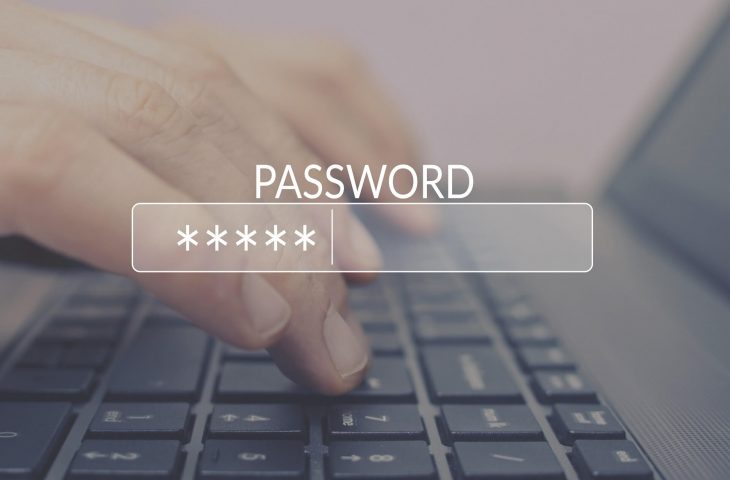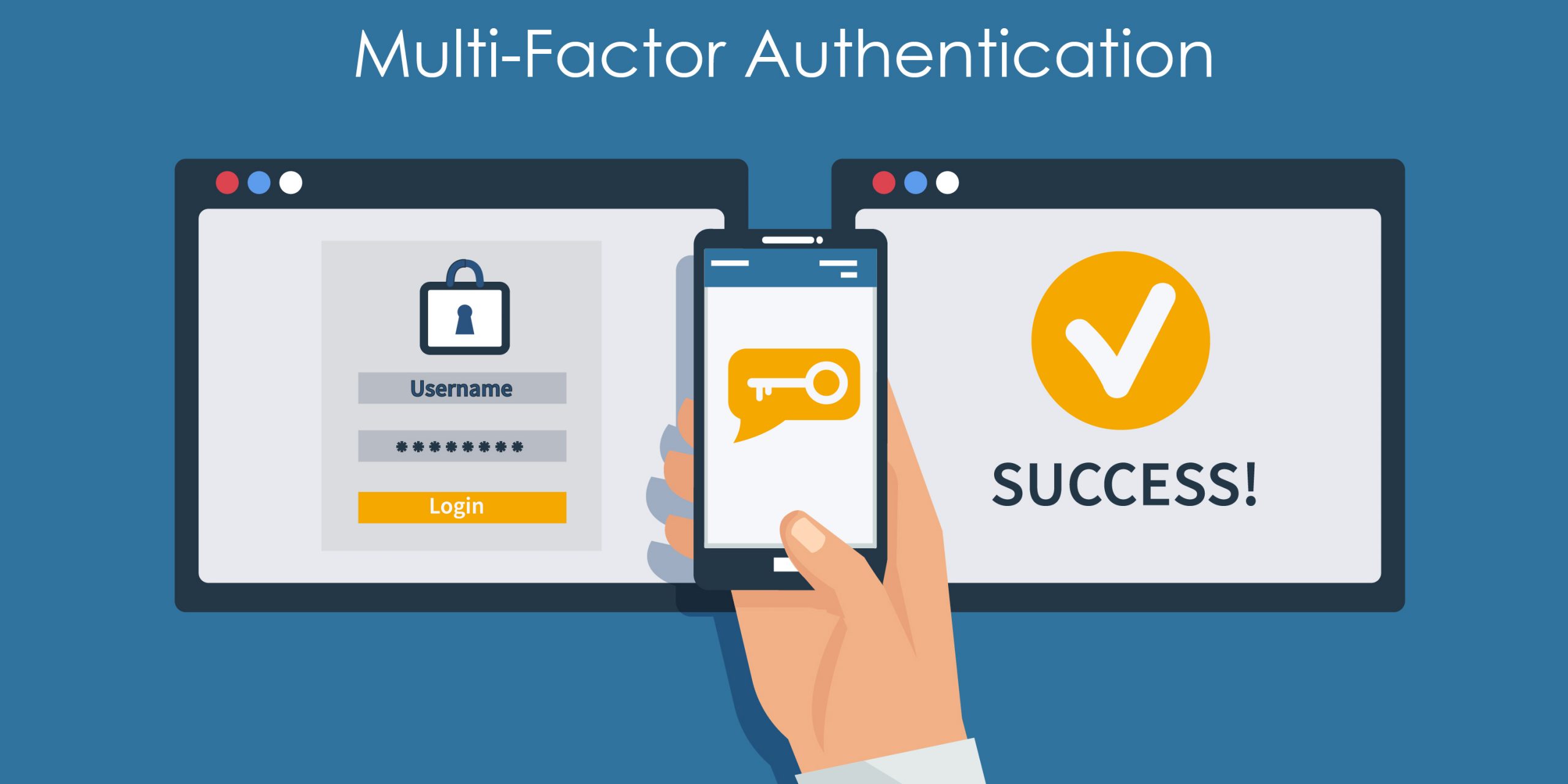Are Password Managers Really Safe?
by ago0

A Quick Introduction to Password Managers
Are password managers safe to use? This question often arises when considering the security of our online accounts. In today’s digital age, where we have numerous online accounts and the need for strong, unique passwords is paramount, password managers have emerged as a popular solution. But what exactly are password managers and are they safe to use?
A password manager is a software application that securely stores and manages passwords for various online accounts. Its primary purpose is to alleviate the burden of remembering multiple passwords by providing a centralized and encrypted repository for all your login credentials. With a password manager, you only need to remember one master password to access all your other passwords.
The importance of using password managers cannot be overstated. In an era where cyber threats are becoming increasingly sophisticated, weak and reused passwords pose a significant risk to our online security. Password managers offer a convenient and secure way to generate and store complex, unique passwords for each of our accounts, reducing the likelihood of unauthorized access.
Let’s delve deeper into the world of password managers and explore their safety features, benefits, and potential risks.
Benefits of Using Password Managers
One of the key advantages of using password managers is the convenience they offer in managing multiple passwords. Instead of struggling to remember numerous complex passwords, you can rely on a password manager to securely store and autofill your login credentials. This not only saves time but also reduces the frustration of constantly resetting forgotten passwords.
Another significant benefit of password managers is their ability to generate strong, unique passwords for each of your accounts. By using complex combinations of characters, numbers, and symbols, password managers create virtually uncrackable passwords that are difficult for hackers to guess. This enhances the security of your online accounts and protects your sensitive information.
Furthermore, password managers can improve productivity by streamlining the login process. With autofill capabilities, you can quickly and effortlessly log in to your accounts, eliminating the need to manually enter usernames and passwords. This can be especially beneficial for individuals who frequently access multiple accounts throughout the day.
Overall, password managers offer a range of benefits, including convenience, enhanced security, time-saving features, and improved productivity. Now, let’s explore the security features that make password managers a safe choice for protecting your online accounts.
Security Features of Password Managers
Password managers employ various security features to safeguard your login credentials and protect against unauthorized access. One of the primary security measures is encryption. Password managers use strong encryption algorithms to encrypt your passwords and other sensitive data, ensuring that even if the data is intercepted, it remains unreadable without the decryption key.
In addition to encryption, many password managers offer two-factor authentication (2FA) as an extra layer of security. 2FA requires users to provide a second form of verification, such as a fingerprint scan or a unique code sent to their mobile device, in addition to the master password. This adds an additional barrier for potential attackers.
Biometric authentication is another security feature offered by some password managers. This allows users to access their password vaults using their unique biometric identifiers, such as fingerprints or facial recognition. Biometric authentication provides an extra level of security by ensuring that only authorized individuals can access the password manager.
Furthermore, password managers play a crucial role in protecting against phishing attacks and other cyber threats. They can detect and warn users about potentially malicious websites or login pages, reducing the risk of falling victim to phishing scams. Some password managers also offer features like secure password sharing and password strength analysis to further enhance security.
Leading password managers continuously update their security features to stay ahead of emerging threats. They undergo rigorous testing and auditing to identify and address any vulnerabilities. By choosing a reputable password manager, you can benefit from these robust security measures and have peace of mind knowing that your online accounts are well-protected.
Encryption & Data Protection
Encryption is a fundamental aspect of password manager security. It involves the process of converting plain text data, such as passwords, into an unreadable format using encryption algorithms. This encrypted data can only be decrypted with the appropriate decryption key, which is known only to the user.
Data protection is a critical consideration for password managers. They employ various encryption standards, such as Advanced Encryption Standard (AES), to ensure the confidentiality and integrity of user data. AES is widely regarded as one of the most secure encryption algorithms and is used by many password managers.
When you store your passwords in a password manager, they are encrypted both at rest and in transit. This means that even if someone gains unauthorized access to the password manager’s database or intercepts the data during transmission, they will be unable to decipher the encrypted passwords without the decryption key.
Encryption safeguards user data by making it virtually impossible for hackers to access and misuse the information. It adds an extra layer of protection, ensuring that even if a security breach occurs, the stolen data remains unreadable and unusable.
Now that we’ve explored the security features and encryption methods employed by password managers, let’s address some common concerns about their safety.

Are Password Managers Vulnerable to Hacking?
While password managers are designed to enhance security, it’s natural to have concerns about their vulnerability to hacking. However, it’s important to note that no system is entirely immune to security risks. That being said, password managers have robust security measures in place to mitigate potential vulnerabilities.
One potential vulnerability is the master password, which is used to access the password manager. If an attacker gains access to the master password, they could potentially access all the stored passwords. To mitigate this risk, password managers employ strong encryption and hashing techniques to protect the master password. Additionally, it’s crucial for users to choose a strong and unique master password and avoid using it elsewhere.
Another concern is the centralization of passwords in a single tool. Critics argue that if a password manager is compromised, it could result in the exposure of all passwords. However, reputable password managers employ strong encryption and other security measures to protect against such scenarios. It’s important to choose a password manager from a trusted provider with a proven track record in security.
Historically, there have been instances where password managers have experienced security breaches. However, it’s worth noting that these incidents are relatively rare, and the affected password managers have taken immediate action to address the vulnerabilities and enhance their security measures. The cybersecurity community continuously works to identify and rectify any weaknesses in password manager systems.
It’s important to remember that the security of password managers is a shared responsibility between the provider and the user. By following best practices, such as regularly updating the password manager, enabling multi-factor authentication, and practicing good password hygiene, users can significantly reduce the risk of security breaches.
Now that we’ve addressed the potential vulnerabilities and risks associated with password managers, let’s explore how to choose a secure password manager.
How to Choose a Secure Password Manager
Choosing a secure password manager is crucial for ensuring the safety of your online accounts. With numerous options available, it’s essential to evaluate and select a password manager that meets your security requirements. Here are some key criteria to consider:
Encryption standards: Look for password managers that use strong encryption algorithms, such as AES-256, to protect your data.
Security features: Consider the additional security features offered by the password manager, such as two-factor authentication and biometric authentication.
Reputation: Research the reputation and track record of the password manager provider. Look for reviews and feedback from other users to gauge their satisfaction and the provider’s commitment to security.
User-friendly interface: Choose a password manager with an intuitive and user-friendly interface that makes it easy to manage your passwords.
Compatibility: Ensure that the password manager is compatible with the devices and operating systems you use, such as Windows, macOS, iOS, or Android.
Customer support: Consider the availability and quality of customer support provided by the password manager provider. Prompt and helpful support can be invaluable in case of any issues or concerns.
By carefully evaluating these criteria and conducting thorough research, you can select a password manager that aligns with your security needs and provides a safe environment for managing your passwords.
User Behavior & Password Manager Security
While password managers offer robust security features, user behavior plays a crucial role in maintaining their effectiveness. Here are some best practices for users to follow when using password managers:
Use a strong master password: Choose a unique and complex master password that is difficult for others to guess. Avoid using common phrases or personal information that can be easily associated with you.
Enable multi-factor authentication: Whenever it is possible, enable multi-factor authentication for your password manager. This adds an extra layer of security by requiring an additional form of verification.
Regularly update your password manager: Keep your password manager up to date with the latest software updates and security patches. This ensures that you benefit from the latest security enhancements and bug fixes.
Practice good password hygiene: Avoid reusing passwords across multiple accounts and regularly change your passwords for added security. Let your password manager generate strong, unique passwords for each account.
Be cautious of phishing attempts: Stay vigilant and be wary of suspicious emails, messages, or websites that may attempt to trick you into revealing your login credentials. Password managers can help detect and warn against phishing attempts, but it’s essential to remain cautious.
By following these best practices, users can maximize the security of their password managers and minimize the risk of unauthorized access to their online accounts.
Multi-Factor Authentication & Password Managers
Multi-factor authentication (MFA) adds an extra layer of security to password managers by requiring users to provide multiple forms of verification to access their accounts. In addition to the master password, users must provide another piece of information, such as a unique code sent to their mobile device or a fingerprint scan.
Enabling multi-factor authentication in your password manager significantly enhances its security. Even if an attacker manages to obtain your master password, they would still need the additional verification factor to gain access to your password vault. This additional layer of security makes it exponentially more challenging for unauthorized individuals to compromise your accounts.
Most password managers offer support for multi-factor authentication, and it’s highly recommended to enable this feature. The specific steps for enabling and using multi-factor authentication may vary depending on the password manager you choose. Consult the documentation or support resources provided by your password manager for guidance on setting up and using multi-factor authentication.
Now that we’ve explored the benefits of multi-factor authentication, let’s move on to password manager best practices.

Password Manager: Best Practices
To maximize the security and effectiveness of your password manager, it’s essential to follow best practices. Here are some key recommendations:
Set up your password manager correctly: Take the time to properly set up your password manager, including choosing a strong master password and enabling additional security features like multi-factor authentication.
Generate strong, unique passwords: Let your password manager generate strong, unique passwords for each of your accounts. Avoid reusing passwords, as this increases the risk of unauthorized access if one account is compromised.
Regularly update your passwords: Periodically change your passwords, especially for critical accounts. This reduces the risk of unauthorized access and ensures that compromised passwords are no longer valid.
Share passwords securely: If you need to share passwords with others, use the password manager’s secure sharing feature. Avoid sharing passwords through unencrypted channels like email or messaging apps.
Maintain regular backups: Back up your password manager’s data regularly to ensure that you can recover your passwords in case of any unforeseen events, such as device loss or data corruption.
Stay informed about security updates: Keep track of any security updates or notifications from your password manager provider. Promptly install updates to benefit from the latest security enhancements.
Continuously educate yourself: Stay informed about the latest security best practices and emerging threats. Regularly educate yourself on password manager security and adapt your practices accordingly.
By following these best practices, you can maximize the security of your password manager and ensure the safety of your online accounts.
Tips for Maximizing Password Manager Security
To maximize the security of your password manager, consider implementing the following tips:
Regularly audit your security settings: Review your password manager’s security settings periodically to ensure they align with your preferences and security requirements.
Enable automatic password updates: Some password managers offer the option to automatically update passwords for supported websites. Enable this feature to ensure that your passwords are regularly refreshed.
Regularly review your password manager’s access logs: Check your password manager’s access logs for any suspicious activity. If you notice any unauthorized access attempts, take immediate action to secure your accounts.
Keep your devices secure: Protect the devices you use to access your password manager with strong passwords, biometric authentication, and up-to-date security software.
Be cautious of third-party integrations: If your password manager offers integrations with other apps or services, carefully review the security measures and permissions required by these integrations.
Regularly change your master password: Consider changing your master password periodically, especially if you suspect it may have been compromised.
Stay informed about emerging threats: Keep up to date with the latest cybersecurity news and trends. Stay informed about new threats and vulnerabilities that may affect password managers.
By implementing these tips, you can further enhance the security of your password manager and protect your online accounts from unauthorized access.
Are Password Managers Safe?
In conclusion, password managers are a safe and effective solution for managing and securing your online accounts. They offer numerous benefits, including convenience, enhanced security, and time-saving features. With robust encryption, multi-factor authentication, and other security measures, password managers provide a secure environment for storing and generating strong, unique passwords.
One of the key advantages of using a password manager is the convenience it offers. Instead of having to remember multiple complex passwords for different accounts, users only need to remember one master password to access their password manager. This eliminates the need to use weak or easily guessable passwords, as the password manager can generate and store strong passwords for each account.
Furthermore, password managers enhance security by encrypting the stored passwords. Encryption ensures that even if someone gains unauthorized access to the password manager’s database, they won’t be able to decipher the passwords without the encryption key. Additionally, many password managers offer multi-factor authentication, which adds an extra layer of security by requiring users to provide additional verification, such as a fingerprint or a one-time code, before accessing their passwords.
Another benefit of using a password manager is the time-saving features it provides. With a password manager, users can automatically fill in login credentials for websites and applications, saving them the hassle of typing in usernames and passwords manually. This not only saves time but also reduces the risk of errors, such as mistyping passwords or using the wrong credentials for a particular account.
While no system is entirely immune to security risks, password managers have proven to be a reliable tool for protecting against unauthorized access and mitigating potential vulnerabilities. However, it’s important for users to follow best practices to maximize the security of their password managers. This includes regularly updating the password manager software, using strong and unique master passwords, and enabling additional security features, such as two-factor authentication.
Choosing a reputable password manager is also crucial. It’s recommended to opt for password managers from trusted companies with a track record of prioritizing security and regularly updating their software to address any vulnerabilities. Reading reviews and doing research before selecting a password manager can help users make an informed decision.
Staying informed about emerging threats is another important aspect of using password managers safely. Being aware of common attack techniques, such as phishing or malware, can help users recognize and avoid potential threats. Regularly updating oneself about the latest security practices and staying vigilant while browsing the internet can further enhance the security of password managers.
So, are password managers safe to use? The answer is a resounding yes. With the right precautions and user behavior, password managers can significantly enhance your online security and provide peace of mind in today’s digital landscape.

















































